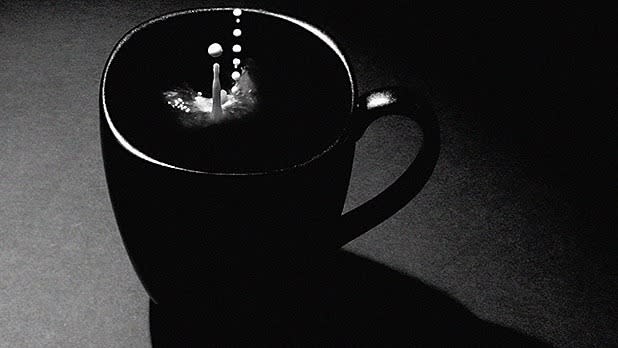How Coffee Can Give you Jet Lag

(Photo Courtesy of Josh Fiedler / Getty Images)
Everybody knows caffeine keeps you awake. But a new study shows that it messes with sleep cycles even more than previously thought. Besides interfering with the brain receptors that naturally make you feel drowsy at night, having a coffee in the evening throws your entire sleep cycle, potentially making it much tougher to wake up the next morning.
Related: 7 Worrisome Facts About Caffeine
According to study author John O'Neill from the University of Cambridge, sleep is controlled by two processes: Homeostatic, the internally regulated drive which essentially means the longer you go without sleep, the more you need; and our circadian rhythms, which relies on cues from the environment such as fading daylight to tell our bodies when to be awake and when to rest.
Most experts agree that caffeine stunts sleep by blocking the homeostatic drive, keeping us awake when we should be getting shut-eye. “However, surprisingly, no one had ever looked at whether caffeine also has an effect on the body’s clock,” says O'Neill. When his team took a close inspection, not all that surprisingly, they found that it does.
Related: The Ultimate Guide to Better Sleep
Looking at five volunteers over the course of 49 days, researchers found that a dose of caffeine equal to a double espresso consumed three hours before normal bedtime had massive effects on people’s melatonin rhythm. "On average, the nightly melatonin surge was delayed by nearly an hour — equivalent to one hour of jet lag,” says O'Neill. “This means caffeine in the evening not only keeps you awake, but once you do fall asleep, it makes it harder to get up at your normal time the next morning. That’s because your body clock basically thinks you are one hour farther west."
Related: Does Drinking Coffee Reduce Your Risk of Skin Cancer?
So when should you cut yourself off? O'Neill says caffeine takes one to two hours to peak in the blood stream after it’s consumed, and it takes four to six hours to clear out of your system. "Based on this, I say 5 to 6 PM would be the latest most people would want to have a coffee or other caffeinated beverage,” he says.
By Melaina Juntti
More from Men’s Journal:
Are You Drinking Too Much Coffee?

